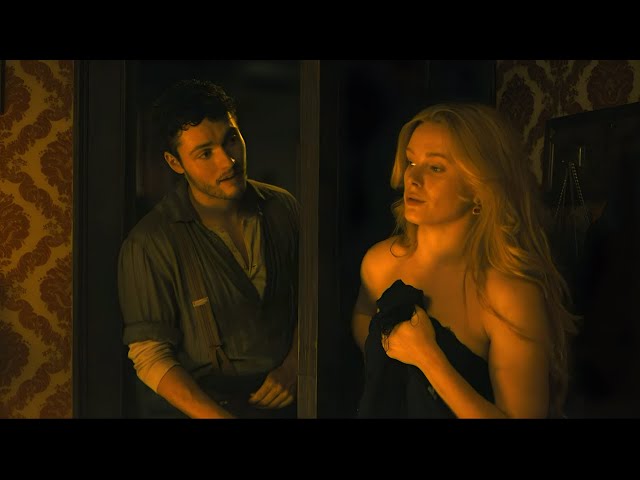
**A Farmer’s Redemption: Love Against All Odds**
*Introduction*
Today’s review focuses on a poignant tale of love, sacrifice, and redemption—centered around a farmer named Michael and a woman named Angel, whose lives intertwine in unexpected ways. Set against the backdrop of 1850s California, this story explores themes of trauma, hope, and the transformative power of unconditional love.
*Storyline Summary*
The narrative begins with Angel, a beautiful but tormented young woman living in the town of Rockies, where men compete for a chance to spend a night with her. Her tragic past unfolds through flashbacks: abandoned by her cruel father Alex, she loses her mother Nah to illness and falls into the clutches of exploitative figures like the jeweler Jon and later, the ruthless Duke. Forced into a life of exploitation, she eventually ends up under Duchess, continuing her cycle of suffering.
Enter Michael, a devout and hardworking farmer who prays for a life partner and instantly falls for Angel upon seeing her. Despite her cold rejections and the shocking reality of her profession, Michael persists, offering marriage and a way out. After a brutal beating orchestrated by Duchess, Michael rescues Angel by paying off her debts and brings her to his farm. As she recovers, he patiently cares for her, teaching her farm work and showing her kindness without expectation. Though she struggles with self-worth and a painful past—including forced infertility—Angel gradually opens up to love. However, guilt and fear lead her to leave, believing Michael deserves better. Her journey takes her through danger, confrontation with her past abuser Duke, and eventual redemption as she rescues young girls and starts a school for survivors. Years later, reunited with Michael, they embrace their future—healed, together, and finally a family.
*Performances & Direction*
While specific performances aren’t detailed, the characters are richly drawn. Michael’s unwavering patience and moral strength make him a compelling lead, embodying resilience and compassion. Angel’s arc—from trauma-hardened skepticism to vulnerability and courage—is emotionally layered. The direction effectively contrasts grim urban exploitation with the pastoral serenity of farm life, using flashbacks to deepen emotional context and highlight character motivations. The handling of sensitive themes like abuse and redemption is thoughtful, never glorifying suffering but emphasizing growth.
*Music & Technical Aspects*
The technical execution supports the narrative’s emotional weight. Visual contrasts between the gritty city and lush countryside enhance the story’s thematic divide—despair versus hope. While music isn’t explicitly discussed, it likely underscores key moments, from tense confrontations to tender exchanges, balancing melancholy and uplift without overpowering the drama. Pacing allows room for character development, though some transitions between timelines could feel abrupt. Overall, the production values serve the story well, even if not groundbreaking.
*Conclusion*
This is a moving story of love’s power to heal even the deepest wounds. Michael and Angel’s journey—from darkness to light—reminds viewers that redemption is possible with patience, courage, and unconditional support. If you appreciate heartfelt dramas about resilience and second chances, this film is worth your time. Share your thoughts after watching—did Michael and Angel’s story resonate with you?




